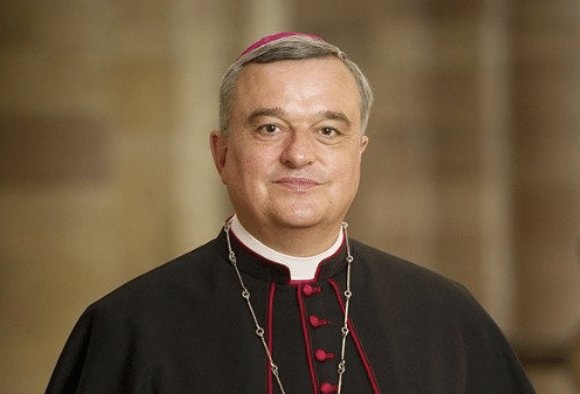— A German bishop issued a letter last Thursday in which he asked pastors in his diocese to bless same-sex couples.

Bishop Karl-Heinz Wiesemann wrote to priests, deacons and lay pastoral workers saying that the blessings — which he also extended to remarried couples — could take place in churches in the Diocese of Speyer.
“The ceremony must differ from a church wedding ceremony in terms of words and signs and should explicitly reinforce the love, commitment, and mutual responsibility in the couple’s relationship as an act of blessing,” he wrote in the November 3 letter.
“It may be that the domestic setting (possibly also with the blessing of the shared apartment) is more suitable for receiving a blessing,” he added.
“A blessing ceremony can also take place in the church or at another suitable location. The celebration must differ in words and symbols from a church wedding and, as an act of blessing, should expressly reinforce the love, commitment and mutual responsibility that exists in the couple relationship.”
The bishop, who has led the diocese in southwest Germany since 2008, pointed out that 93 per cent of participants at the last meeting of the controversial German Synodal Way in March of this year, were in favour of enabling “blessing celebrations for people who love each other” and stressed an “urgency” to implement the blessings.
“For some time now, we have been striving in our diocese to provide pastoral care, touched and moved by God’s humanity, for couples who, for various reasons, cannot or do not want to receive the sacrament of marriage,” he continued.
“Based on my own long-standing pastoral experience, I am also moved by the great need and the deep longing of many, not infrequently, deeply religious people for God’s blessing and the church’s benevolent encouragement for their life together with all the searching, failure, new departures and happy finds – that is, with what makes human life so deeply fragile and precious at the same time.
“For me, Jesus’ instruction from the middle of the Sermon on the Mount “Judge not, lest you be judged” has increasingly become an essential key for a pastoral ministry based on the Gospel of Jesus, as have the oft-quoted words of Pope Francis, “Who am I to judge him?”
Wiesemann wrote: “Both with regard to believers whose marriages have broken down and who have remarried, and especially with regard to same-sex oriented people, it is urgently time — especially against the background of a long history of deep hurt — for a different perspective to find a pastoral attitude inspired by the Gospel, as many of you have been practicing for a long time.”
“That’s why I campaigned for a reassessment of homosexuality in Church teaching in the synodal way and also voted for the possibility of blessing ceremonies for same-sex couples. I stand by that. I hope that on the path of the global synod this pressing question of our time can also experience positive development.”
At the synod on synodality, Pope Francis addressed the topic of blessings for same-sex relationships in a reply to five dubia, or doubts, sent to him by cardinals ahead of the assembly in Rome.
The pope said it was a matter of pastoral prudence to “properly discern whether there are forms of blessing, requested by one or more people, that do not convey a misconception of marriage”.
“Decisions that may be part of pastoral prudence in certain circumstances need not be transformed into a norm,” he wrote. “In other words, it is not appropriate for a diocese, a conference of bishops, or any other ecclesial structure to authorise constantly and officially procedures or rules for every type of affair.”
In his letter, the bishop affirmed that “no one who conducts such blessing celebrations has to fear sanctions” and that by granting such “blessings,” “we give these believers a clear sign of God’s closeness in the community of the Church.”
He said he would “respect” when pastors “cannot reconcile a blessing with your conscience and understanding of faith” but also instructed them to “refer couples who ask for a blessing” to the diocese.
The 63-year-old bishop said that until the German bishops’ conference completed the handout, pastors should refer to a 52-page publication called “The celebration of blessings for couples,” produced by the AFK, an association for family education and pastoral care.
Complete Article ↪HERE↩!
